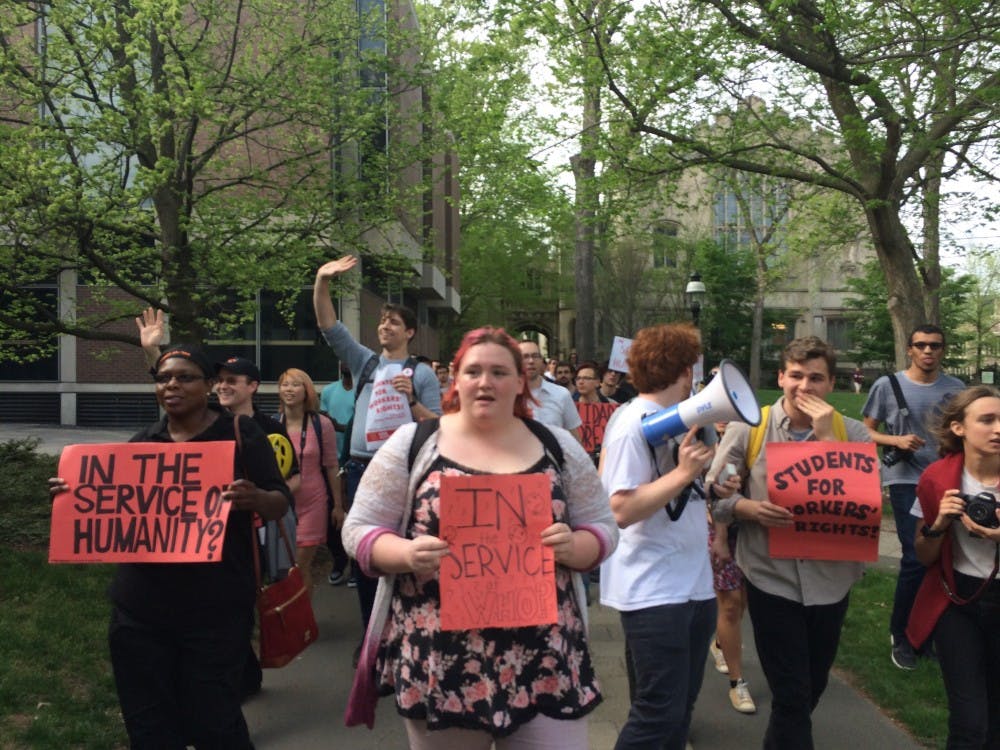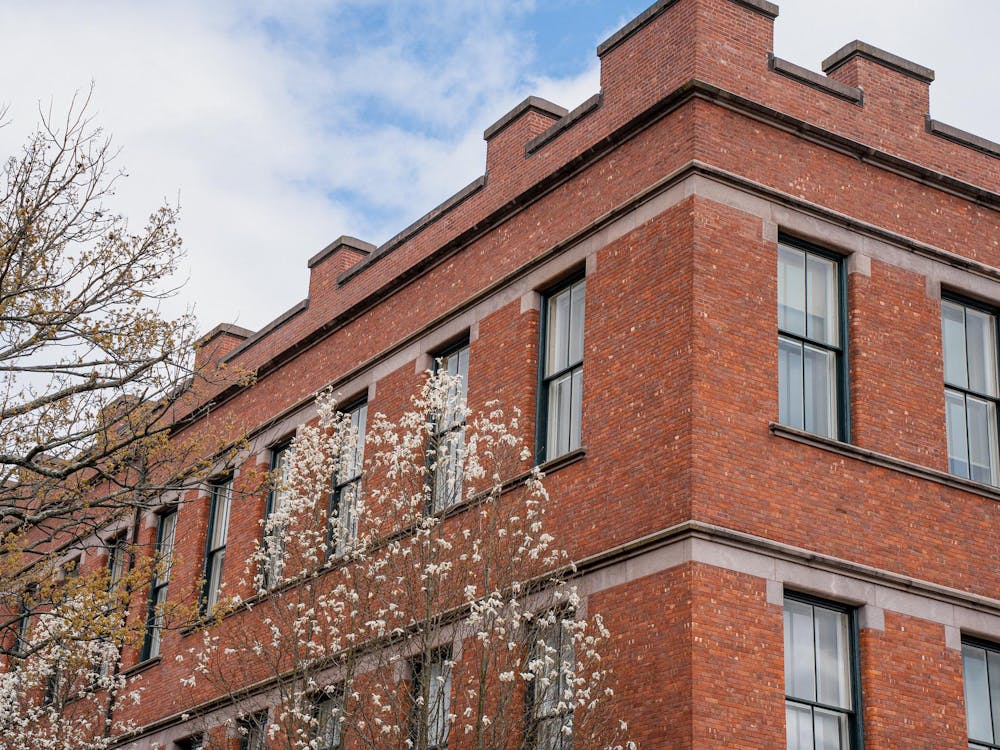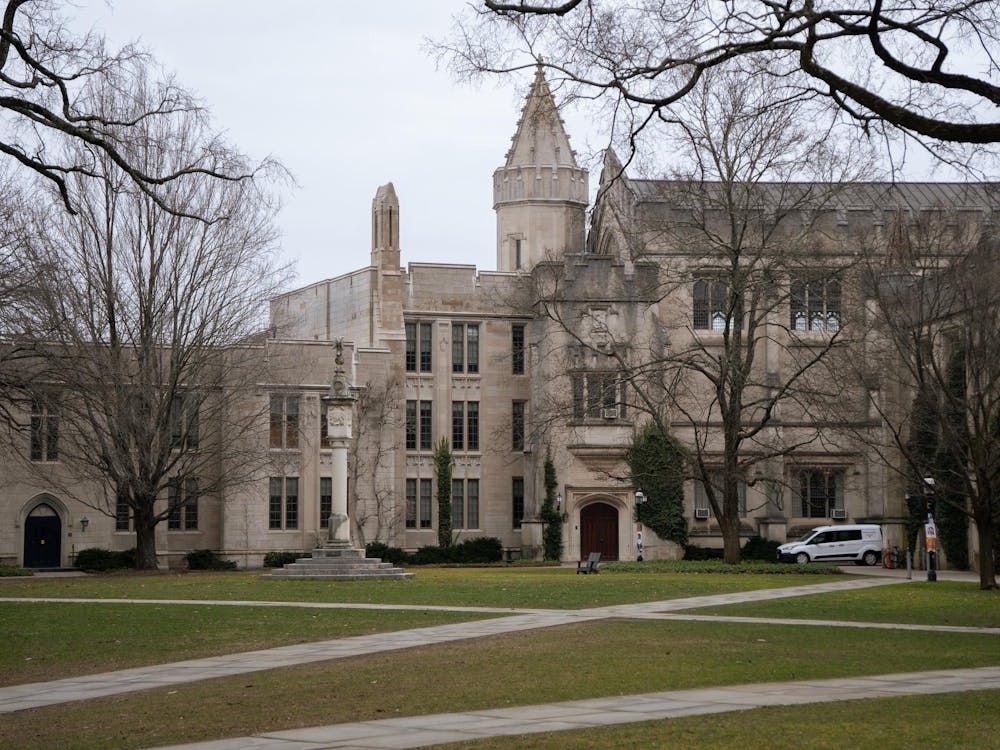On Thursday, April 27, the Young Democratic Socialists of Princeton hosted a Students for Workers’ Rights march in support of campus workers affected by snowstorms this winter. The YDS clarified in a Facebook post that individual workers approached the group and that they coordinated with these workers to plan the march. Dining hall workers also wrote a letter to the editor of The Daily Princetonian regarding their concerns about how campus workers were treated by University administration as a result of severe weather during the winter season.
On Facebook, the YDS stated that it demands the University back-pay workers who worked anytime on February 19 or March 14 during the snowstorms on those days but did not receive overtime pay because their shifts were outside the “emergency period” of 5 a.m. to 5 p.m. In the post, YDS noted that workers had to drive through severe weather to arrive at the University for work, but they still were paid their normal hourly rate. Workers who stayed on campus during these hours and slept on cots in the multipurpose room of Frist Campus Center or Forbes College, were, however, paid overtime.
The YDS also demanded that the University guarantee its workers comfortable private accommodations in hotels in future emergency events. During the events of this winter, managers were put up in hotels, two people to a room, while entry-level workers slept on campus in cots.
Approximately 100 people attended the march that began on Alexander Beach outside Richardson Hall and ended in the Frist Gallery.
Protestors carried red signs displaying messages such as “Demand back pay now!” and “In the service of who?”
David Hungerford, a retired high school math teacher, came all the way from Montclair, N.J., to attend the protest and support Princeton’s workers.
“I heard about this and I’m always glad to see students doing what they should do,” said Hungerford.
Speaking about the need to support issues of social justice and civil rights, Hungerford said, “There’s always something. It’s like, what I do.”
At the start of the protest, a student leader from YDS led students in chants of “What do we want? Back pay! When do we want it? Now!”
Other chants included “Princeton admins are no good, pay the workers what you should.”
Tashi Treadway ’19 spoke to the ‘Prince’ about the importance of the work that dining hall staff do for students on a daily basis.
“They do a lot for us and we should definitely be appreciative,” said Treadway. “We live in this perfect bubble because of them.”

Treadway is the Cartoon Editor for The Daily Princetonian.
Casey Waterman, a librarian at the Princeton Public Library, put it even more simply, saying, “It’s a labor action. I stand for workers’ rights.”
Two graduate students at the protest noted that they had been following events relating to the March 14 snowstorm closely, and that the YDS had helped them to stay informed about developments.
Marcus Johnson, a sixth-year graduate student in politics, noted that he had also stayed involved through a petition following the snowstorm that encouraged students to send supportive cards to dining hall workers.
Johnson said that when he learned details of the University’s treatment of workers, he was shocked. He saw a big disparity between the resources available to the University and its students and the resources that were made available to its campus workers.
“I thought it was egregious, given the resources you see on the daily,” said Johnson.
Mochi Liu, a graduate student in quantitative and computational biology, gave an additional perspective. Having received his undergraduate education at Berkeley University, he said the YDS protest seemed relatively mild.
“This stuff is really tame by my standards. I want to see more of this stuff, but bigger,” said Liu.
The number of people participating in the YDS march seemed to grow as it made its way through East Pyne Hall, past the Woolworth Center for Musical Studies, and finally into Frist.
A University security officer and University administrator escorted marchers into the large building as students held open the large double doors to make way for protestors.Students who were previously undistracted in the Frist TV lounge suddenly found themselves face-to-face with protestors speaking into bullhorns.
In the Frist Gallery, members of the graduate student union, PGSU, spoke about the need for graduate students to work in solidarity with campus workers. One graduate student said that the rights of these two groups are fundamentally united.
Dining hall workers also voiced their concerns with University policy.
One dining hall worker who wished to remain anonymous said, “I feel like the students appreciate the service we give them. They’re standing up for us because we’re at the bottom.”
The worker is an immigrant to the United States from the Caribbean, and she has been in this country since 1991. She said that many dining hall workers are too busy to put on the kind of protest that students are able to orchestrate.
“We have kids who go to college; we have bills to pay,” she said.
Workers at the protest also spoke to the fact that the University only gives them yearly raises of 50 cents per hour. Other workers mentioned that some workers only received 25- or 15-cent raises this year.
Speaking about the precedent that may be created by the YDS protest, one worker said, “Today is the beginning of a new era here.”
A University administrator escorting the protest declined to comment, but Assistant Vice President for Communications Daniel Day issued a University response to the protest.
He wrote that the University greatly appreciates the work and commitment of the staff to keep the University community "safe, well and well-fed doing difficult circumstances. He also explained that the workers that stayed overnight are part of a collective bargaining unit, Services Employees' International Union Local 175, and that they stayed overnight in accordance with their contract and by choice.
"If hotel rooms are available, workers will be housed there, but in the mid-March storm there weren't enough rooms," Day wrote. "Workers were given a choice to stay on campus or to commute; not one was forced to stay, and they decided based on what worked best for them and their families. Workers were paid time and half for when they were sleeping on campus and double time during the hours they worked while the campus was close to non-essential employees."
The protest took place at 4:15 p.m. at Alexander Beach on Thursday, April 27.
This story has been updated to include comment from the University.









